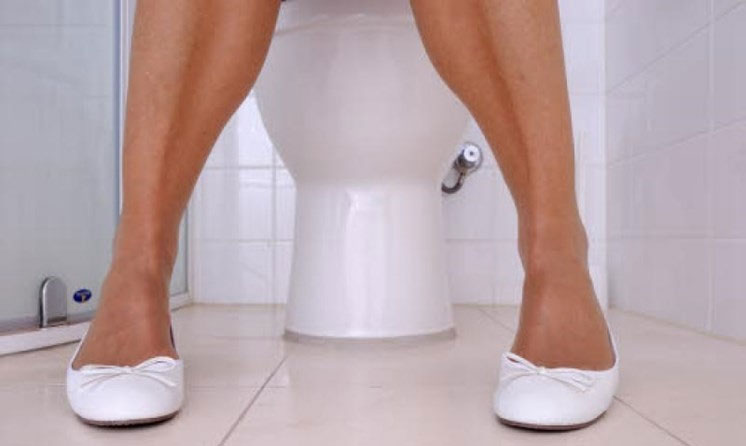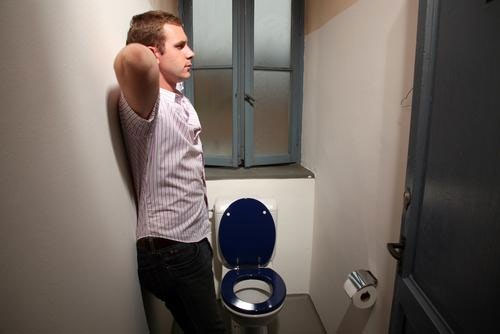Irritability: Causes, symptoms, diagnosis and treatment
In most people, the bladder can store urine until it is convenient to go to the toilet, usually 4 to 8 times a day. If this number is exceeded, even waking up at night to go to the bathroom, the cause may be due to drinking too much water or / and drinking water close to bedtime or it may be a sign of illness. So much urination, people call it peeing .
Overview of diabetes mellitus
This is an unusual symptom, frequent urination, repeated throughout the day, and only a small amount of urine each time. Sometimes it is not possible to reach the toilet, urine flowing into the pants (urinating) causes discomfort and unsanitary, affecting the health and living of the patients.
So, what is urination? Urination is not a disease, but a symptom of many different pathologies. If the frequency of urination affects life, work and study, patients should visit a reputable medical facility and have a urologist to be diagnosed and treated in a timely manner. potential. Detailed information about the cause of the problem and how to treat it are detailed in the article below.

Urination is not a disease, but a symptom of many different pathologies.
Causes of urination
Frequent urination can be a symptom of various problems from kidney disease to excessive drinking. When urinating often with fever, sudden urination and pain or discomfort in the abdomen, the patient may have a urinary tract infection. Other causes of high urination include:
- Diabetes : Frequent urination with unusually large amounts of urine is often an early symptom of both type I and type II diabetes when the body tries to excrete unused glucose through the urine.
- Pregnancy : From the first weeks of pregnancy, the fast-growing uterus puts pressure on the bladder, causing frequent urination.
- Prostate disease : Prostate enlargement inserts into the urethra and blocks the urine's pathway from the body, leading to bladder stretching due to urinary excretion. At the same time stimulating the bladder so that even when there is little urine still want to urinate, the patient has to urinate several times a day.
- Interstitial cystitis is called bladder pain syndrome: The cause of this disease is unknown, however, characterized by pain in the bladder and pelvic region, frequent urination and frequent feeling of urination right away instantly.
- Diuretics : Some medications for hypertension and edema caused by kidney or disease need to remove water from the body, causing frequent urination.
- Stroke or other neurological diseases : When CNS damage dominates the bladder, leading to bladder dysfunction with a lot of urinary symptoms and frequent urination immediately.
- Less common causes include bladder cancer, bladder dysfunction and radiation therapy.
In addition to the symptoms of underlying pathology, the following symptoms of urination will be included:
- The number of urination and the negative impact on daily life, daily spiritual life of patients.
- Fever
- Back pain or pain on the hip
- Vomiting
- Chills
- Increased appetite or thirst
- Tired
- The urine is bloody or foamy, or drains from the penis or vagina
If the above symptoms are present, it is important that the patient should go to the doctor to diagnose and treat symptoms, the cause, and reduce the impact of much urination that affects life.
The transmission of urinary tract infection
Urination does not spread from an infected person to a healthy person.
Subjects are at risk of developing urination
- Pregnant women
- The patient has urinary tract stones
- Urinary tract infections
- Benign prostatic hyperplasia
- Unsafe sex
Preventing urination
- A balanced diet and maintaining an active lifestyle can help regulate urine output.
- Limiting drinking alcohol, caffeine and cutting off foods can cause bladder irritation such as diuretics, like chocolate, spicy foods and artificial sweeteners.
- Eating foods high in fiber can also help reduce constipation. This can indirectly improve urine flow through the urethra, as constipation can put pressure on the urinary bladder, urethra or both.
- The patient should not be afraid of or hide the disease or self-diagnose, self-treatment as such may lead to incalculable consequences. When there are symptoms of urination, patients need to seek medical care at a reputable medical facility for the purpose of determining the cause of the disease, on that basis, there will be indications of treatment as soon as possible.
Measures to diagnose urination

In order to treat urinary symptoms, patients need to be treated for latent conditions that cause rash.
To diagnose the cause of urination, the doctor will ask about your medical history and physical examination. Depending on your medical history and current symptoms, your doctor may order some of the following tests:
- Urine test : to detect abnormal components in the urine.
- Cystometry : This test is done to measure the pressure inside the bladder and the doctor will consider whether muscle and nerve problems in the bladder are causes of urinary irritation. .
- Cystoscopy : By using a thin endoscope, the doctor can see the inside of the urethra and bladder.
- Neurological testing for detection of urination is caused by neurological disorders.
- Ultrasound . This test uses ultrasound to simulate and display on the computer screen the structure and function of the bladder and other parts of the urinary tract.
Measures to treat rash
In order to treat urinary symptoms, patients need to be treated for latent conditions that cause rash. For example, if diabetes is the cause, treatment will focus on controlling blood sugar.
Overactive bladder treatment can be performed by the following behavioral measures:
- Bladder training (bladder training) : By taking fixed urination time and prolonging urination time within 12 weeks. For example, urinate every 30 minutes, although not urinating. After that, slowly increase the amount of time you do not urinate, up to 50 minutes, then 70 minutes, until you only have to urinate every time you urinate about 3 to 4 hours apart. This exercise will help the patient manage their bladder to keep urine longer and reduce the number of urination.
- Adjusting your diet : Patients should avoid any food that causes irritation or increased bladder activity such as diuretics. Foods / drinks include caffeine, alcohol, carbonated drinks, tomato products, chocolate, artificial sweeteners and spicy foods. Eating fiber-rich foods is also important, because constipation can aggravate the symptoms of overactive bladder syndrome.
- Monitoring of drinking water : Patients need to drink enough water to avoid constipation and excessive urine output. Do not drink water before going to bed, because if you drink a lot of water, you will have to wake up at night and affect the quality of sleep, poor sleep.
- Kegel exercises : This exercise helps patients to strengthen the muscles around the bladder and urethra to improve bladder control and reduce urination.
- Treatment may also include medications, however, depending on the cause, the doctor will prescribe medication to treat the cause and symptoms of the patient.
- Botox injections into the bladder muscle relax the bladder, increase storage capacity and reduce leakage.
- Implant surgery to control nerve stimulation thereby controlling muscle contraction of pelvic floor muscles.
- Retinoblastoma: Causes, symptoms, diagnosis and treatment
- New findings about Alzheimer's disease help early diagnosis and increase healing
- Dangerous cancer - cause and prevention
- A breakthrough in cancer diagnosis and treatment
- Detection of cancer, asthma, diabetes and many other diseases through ... fingerprints
- The new algorithm can predict disease ... 48 hours before symptoms appear
- Where should the Zika virus be tested in Vietnam?
- New method of diagnosis and treatment of breast cancer
- Allergic rhinitis: Causes, symptoms and treatment
- Manufacturing equipment for early diagnosis of throat cancer
- Ultrasound can early diagnose uterine cancer
- Myocarditis: Causes, symptoms and treatment
 Chinese doctors have created medical masks that cover only the nose for convenience of eating and drinking
Chinese doctors have created medical masks that cover only the nose for convenience of eating and drinking Scientists have found a way to help you regrow new teeth after only 2 months
Scientists have found a way to help you regrow new teeth after only 2 months Do non-stick pans cause cancer? What alternatives are there?
Do non-stick pans cause cancer? What alternatives are there? Blisters around the body: Causes, symptoms and treatment
Blisters around the body: Causes, symptoms and treatment